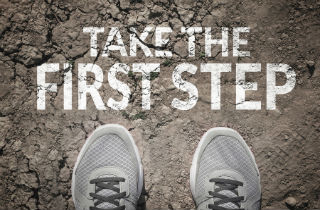Does this sound familiar?
Your spouse did not come home again last night. You don’t know where they are. They didn’t answer their phone and you noticed they took the credit card from your wallet. You frantically go online to see if you can view recent purchases. You call the credit card company and spend fifteen minutes trying to get the representative to track the card since yesterday. It is 6 am and you know soon you will have to get your children ready for school, get ready for work, and put in a full day. You haven’t slept or eaten and you go for your third cup of coffee. Jittery and with a sour stomach you start your day.
How many times have you said this was the last time?
You go through the motions of your day, but until the addict walks through your door, you are unable to function. You are angry beyond belief, but, you thank your lucky stars they were not lying dead in a seedy hotel room. A mix of emotions only a co-addict can explain. You can breathe again. You pick up the pieces and move on even though you swore, “If this happens one more time, I am leaving!”
Co-addicts are used to the high drama, followed by forgiveness, and then restoration of some sense of normality.
The key to co-addiction recovery
The key to recovery can be summarized in one simple word: detachment.
Most co-addicts understand detachment but just cannot do it. They have walked through the doors of Al-anon and sat in disbelief when they were told to leave the addict alone. But what does is mean to be detached from an addict?
Detachment means separating yourself emotionally, and physically, if possible, from the addict and their behavior. The purpose of detachment is to take the focus off of the addict and put it where it belongs — on yourself.
Step 1: Detach from the addict
This first step may be the most difficult one to follow. It is crucial in restoring sanity and peace. At first, letting go feels awkward, uncomfortable. It may be unclear why doing it this way is the right way. It is normal to take some steps back, but the new way gets easier. It becomes more comfortable. With detachment, the co-addict has a chance to clear their mind and see things differently.
Learning how to detach from a loved one may take a great deal of self-convincing; the addict doesn’t need you to take care of them, or prove to them their life is in shambles. In time, the addict will learn this all on their own.
My own co-addiction recovery
As a co-addict, I would have a urine cup home drug test waiting for my husband when he walked in the door after not coming home all night. I had to “prove” he was on drugs. Then someone asked me why I did it, I came up with every reason why it was important; to prove he was an unfit parent and couldn’t be alone with our child. Or when he insisted he was not high, I would have definitive evidence. That person looked at me and said, “You already know when he is using. All you are doing is torturing yourself. You are trying to hold someone accountable for their actions whom is not accountable.”
My husband drained all our bank accounts, didn’t care about myself or my child, when he was using, and drug tests were fifty dollars a pop. The drug tests always came back positive and he would still swear up and down the tests were wrong. I was causing myself undue agony.
The next time he came home, I didn’t have a test waiting. I left him alone. This was the hardest thing I had ever done, but I let go. I felt peace when I wasn’t getting myself upset. I stopped acting out. When I took myself out of an insane situation, sanity was restored. An addict will do what they are going to do regardless of my efforts, so I had to do something else. I forced myself to leave him alone.
Co-addiction recovery is freeing
This new freedom is inspiring. It’s a fresh start that allows you to feel hopeful, not for the addict, but for yourself. You can start to see there is a life without addiction. You are able to make changes you can actually smell, and touch.
Detachment can be a frightening concept. When you detach, you fear for their life. In time, though, you will take back responsibility for yourself and your sanity. With a clear mind, a co-addict can start to break the cycle they have been caught in. With this new relief they can find ways to get their own life back on track.
The first step to a healthy recovery is to let go.









Related Posts